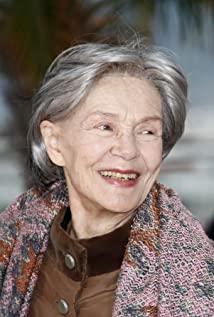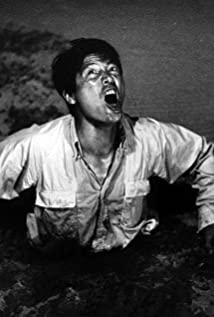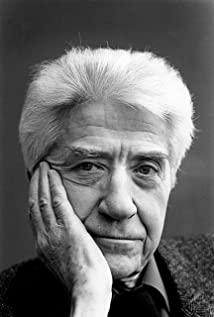Until today, when people mention words such as "literary film", "left bank", "stream of consciousness", etc., they will refer to Alain Resnais and "Hiroshima Love" filmed more than half a century ago countless times. This film is an extremely pioneering work from the point of view of the time and now
"Love of Hiroshima" tells a simple story: a French actress and a Japanese architect briefly met and separated in Hiroshima. The camera faithfully recorded the events of this short day, and inserted the love of Hiroshima in the title. Documentary photography, adding memories of the heroine at the place where the hero and heroine eat together. This seemingly simple story actually bears Alain Resnais' elaboration and reflection on many issues
War and Peace
When many people watch "Hiroshima Love" for the first time, they will think that this is a movie that cleans up Hiroshima and even the Japanese invasion (for example, in the comment area of station B, some people think that this is a petty bourgeoisie movie with a white and left nature) . But when we dig into it, we will find the original intention of Alain Resnais.
At the beginning of the film, the director uses a symbolic shot: dust falls on the naked skin of men and women. This "dust" undoubtedly refers to the fallout from the atomic bomb explosion. In this scene, the fallout is like death falling from the sky, casting a shadow over both love and life.
The following documentary image of Hiroshima can be described as shocking, it is indicting the war and the harm of war. At the same time, it also praises life, the worm that crawled out of the soil on the first day after the war, the dog with three legs but still running in the ruins, the people who endured the disease but stubbornly lived, the deformed baby... These "first day, the first day" Three Days, Fifteenth Day" scene of the end times. Alain Resnais used this to prove that no matter how miserable the reality is, life always goes on.
The director has clearly expressed his point of view in this paragraph: war is terrifying, and life surviving from suffering is great.
In the middle of the film, there is a parade against the atomic bomb. Note that the slogan here is not only to apologise for Hiroshima, but also to oppose the mass production of atomic bombs by Western countries. Anyone who questions the political stance of the film can shut up at this point.
In Resnais' other works, such as "Morielle", the director's anti-war tendencies are also reflected. Moriel was a girl who was raped to death by French soldiers in the Algerian War, but the director, under pressure from public opinion, used the name of the war victim as the title of the work. Couldn't this reflect Resnais' political stance?
memory and forgetting
Memory has always been the theme of Alain Resnais's works. In "Last Year in Marienbad", the hero and heroine reminisce about the blurred past together. In "Morielle", Helen has been suffering from the small love in memory. Torment of detail. But the memories in "Hiroshima Love" are harsh, intense, and hurtful.
When the heroine recalled the scene of Hiroshima, she repeatedly repeated "I saw it" and "I remembered it", while the hero denied her words several times. Here are the two fighting over the memories of Hiroshima. The heroine is the ideological meaning. the aggressor (this will also be mentioned later). Memory is a weapon of man, a means of aggression. It can only be said that Lei is a genius. He embodied the painful feeling of memory like a soldering iron.
When the two were eating by the river, the heroine recalled her first love, and she fell in love with a German soldier. Caught between her own love and hatred of fascism, she wants to remember and forget, which is why she went mad in the past. She is trapped in the madness of the past and the passion of the present, and she cannot escape.
"Hiroshima Love" is also a feminist classic. It deconstructs women's love and thoughts. The French woman who is free and trapped at the same time, and the actress who is confused and sober at the same time, are all vivid and three-dimensional. As a man, the director can also be said to be extremely accurate in describing women, with sympathy and relationship with women. The woman who finally broke free from the cage is also the director's best wishes
"Hiroshima Love" is a dream movie. The viewing process is like entering a dream that has been sealed for a long time. Renai uses his superb editing skills to go back and forth between memory and reality. Climb the stairs of time devised by the masters, retracing and recreating at the same time. See how memory works, how it mirrors human psychology and actions
Hiroshima is a wounded city, carrying pain and sorrow, a city that even the citizens themselves try to forget. A city that wants to forget and a pair of people who want to forget, the city and people are closely linked. The role of the author's choice of Hiroshima as the location of the narrative comes to the fore again.
land and people
I just mentioned a little bit of the benefits of choosing Hiroshima as a narrative location, but I didn't fully answer the reason for "why choose Hiroshima, it's called Hiroshima Love".
Hiroshima is the male lead and Neville is the female lead. The geography is the eternal barrier between the two. The two are far apart on the map, and they cannot communicate psychologically. The protagonist, who is the symbol of the two places, can only travel farther and farther. The geographical gap is an eternal gap, Neville is the personal suffering, Hiroshima is the collective sorrow, its sadness in the silent place has permeated the whole film, and it is destined to be separated.
Don't forget, the heroine's first love is a German soldier! In Neville, the German army is the aggressor, while France is the victorious country. And Hiroshima, where the heroine is now, was originally an aggressor, but now it is a dilapidated city with many injuries.
The heroine is an "invader" in Hiroshima. She used her eyes, her heart, and her memory to invade the present of Hiroshima. Her first love was a double invasion of character and country, and now she's doing the same for Hiroshima. The heroine is both the intruder and the victim. Lei Nai uses this contrast of identity to create a "sense of confrontation" and "a sense of absurdity", making it the keynote of the film, making people unconsciously fall into it
All films with place names in their names can be said to be inseparable from the location: "Visit Italy", through the couple's viewing of the Italian landscape, leads to thinking about marriage and even the social state after the war; "Paris, Texas" is to mislead the audience, Texas and Paris seem to be far apart, but in fact they are in between, which can be said to be another metaphor for the relationship between characters; "I Am Cuba" is a narration of the Cuban revolution... "Hiroshima Love" is the pinnacle of The relationship between geography and people has been pushed to a higher level, not only psychologically, but also a kind of interdependence
The male protagonist is Hiroshima, in silence, in suffering, in loneliness, and under the erosion of the female protagonist's senses. The heroine said that she is Neville, who can never go back, was once occupied, recalled countless times in memory, is lost, and will surely wake up.
(manual dividing line ————————————)
To sum up, Hiroshima Love is an almost perfect video work that should be placed in a museum to be treasured forever.
The depth and breadth of its inner thoughts and the anatomy of human emotional thinking can be said to be the pinnacle of video. Allen Ray is the first person to tell every second so beautiful
View more about Hiroshima Mon Amour reviews











